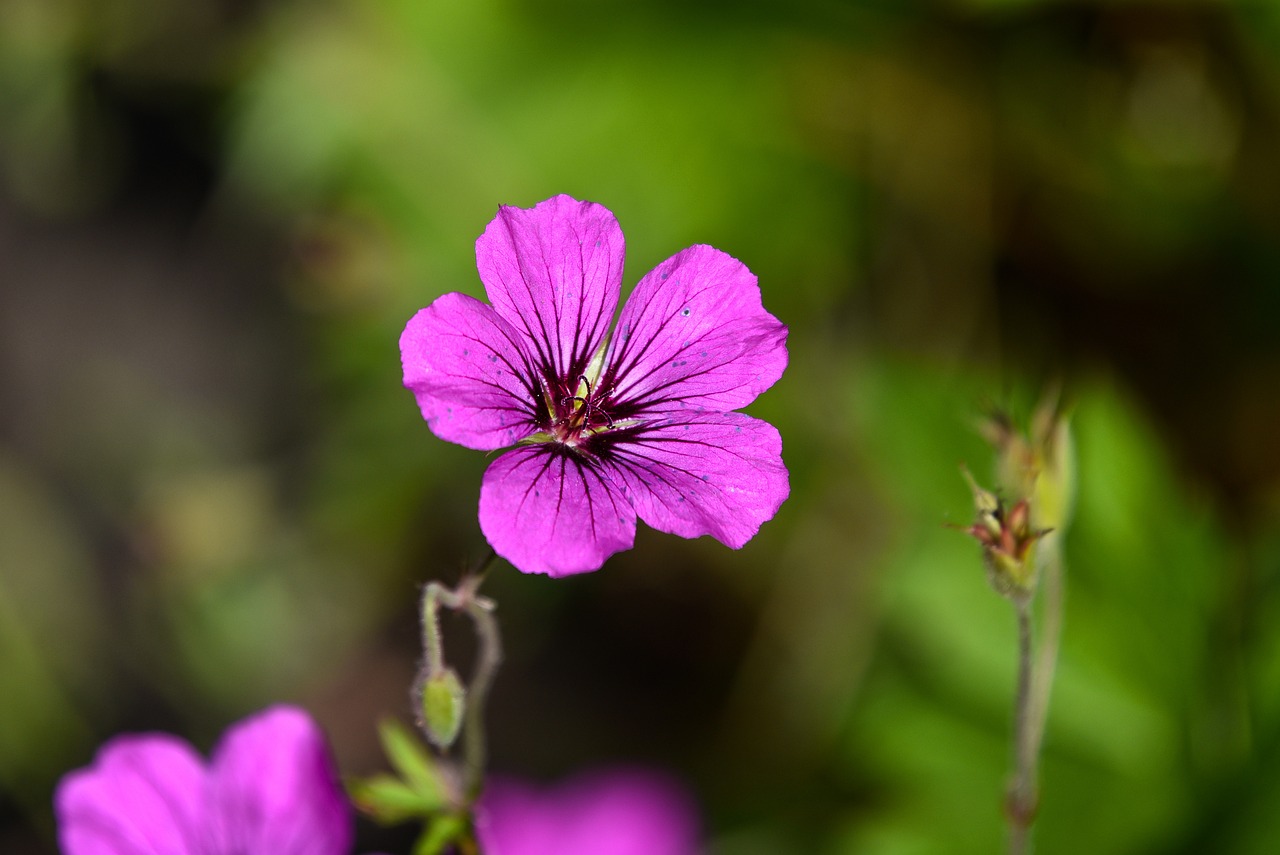Deer and your prized geraniums—it’s a classic garden dilemma. While these vibrant flowers offer some deer resistance thanks to their unique scent and fuzzy texture, a hungry deer will nibble, especially during lean times. This guide provides a comprehensive strategy, blending practical advice with the latest research, to help you safeguard your geraniums from these four-legged foragers.
Decoding the Deer-Geranium Relationship
Do deer eat geraniums? The answer isn’t a simple yes or no. While geraniums aren’t a deer’s favorite meal, several factors influence whether they’ll become a target.
Why Geraniums Aren’t Always on the Menu
Geraniums possess natural defenses. Their pungent aroma and slightly fuzzy leaves can deter deer. Some even have a mild toxicity that might discourage repeat nibbling. Think of it as nature’s built-in “not-so-tasty” signal.
When Geraniums Become a Meal
Deer are opportunistic feeders. If their preferred food sources are scarce, your geraniums may become a tempting meal. This is especially true during winter months or in areas with high deer populations.
Varietal Differences: Some Geraniums Are Tougher
Not all geraniums are created equal when it comes to deer resistance. The Hardy Geranium (G. macrorrhizum), for example, is known for its resilience against deer browsing. Other varieties like Wild Geranium (Geranium maculatum) and Bloody Cranesbill (Geranium sanguineum) also tend to be less appealing to deer. Research suggests that scented geraniums (Geranium macrorrhizum) are generally less tempting to deer due to their strong aroma. Knowing which variety you have is key to understanding its vulnerability.
Building a Fortress for Your Geraniums: Multi-Layered Protection
Since deer can be unpredictable, the best approach is a multi-pronged defense.
1. Repellents: A Shield of Scent
Commercial deer repellents, often containing putrescent egg solids or dried blood, can deter deer. These create a “stinky shield” around your plants. DIY options, like an egg-and-water mixture, can also be effective, albeit with a less-than-pleasant aroma for you too! Reapplication after rain is essential for optimal effectiveness. Some gardeners also suggest using strong-smelling soaps.
2. Barriers: Physical Protection
Fences are the most reliable barrier. An eight-foot-high fence is generally recommended to deter even the most agile jumpers. For smaller areas or individual plants, netting or chicken wire enclosures offer excellent protection. These create a physical barrier that deer can’t easily overcome, offering a safe haven for your geraniums.
3. Companion Planting: The Power of Aromatic Neighbors
Strong-smelling plants like lavender, rosemary, mint, and even certain marigolds can help mask the scent of your geraniums and deter deer. Think of it as creating a fragrant barrier they don’t want to cross. This method not only protects your geraniums but also enhances the beauty and diversity of your garden. Are you curious about whether those vibrant pansies in your garden are also a tempting treat for deer? Discover the surprising truth about do deer eat pansies.
4. Strategic Placement: Location Matters
Deer tend to avoid areas near houses and well-lit spaces. Planting your geraniums closer to your home or near outdoor lights may make them less of a target.
5. Motion-Activated Sprinklers: The Element of Surprise
Motion-activated sprinklers deliver a startling burst of water, effectively scaring deer away. While they may become accustomed to the sprinklers eventually, the initial surprise can be a strong deterrent. This method is humane and can be particularly effective during initial encounters.
Who’s Nibbling at Night? Identifying Nocturnal Garden Raiders
If you notice damage to your geraniums at night, deer are not necessarily the culprit. While a hungry deer might take an occasional bite, other nocturnal creatures are more likely suspects. Rabbits, for instance, find geraniums quite appealing. Budworms (moth larvae) are another common pest, burrowing into buds and causing significant damage. Various insects, slugs, and snails also enjoy a nighttime geranium snack. Protecting your geraniums after dark may require different tactics, such as netting or targeted insecticides for specific pests.
Creating a Deer-Resistant Garden: Choosing the Right Flowers
While no plant is entirely “deer-proof,” many flowers are far less appealing to deer than geraniums. Daffodils, marigolds, lavender, rosemary, and yarrow are excellent choices for a deer-resistant garden. Combining these with the protective measures outlined above creates a comprehensive defense strategy.
Understanding Deer Behavior: The Key to Success
The most effective deer deterrent strategy will depend on your specific situation. Factors like the size of your garden, local deer population, and your budget all play a role. Observing deer activity in your area – tracks, droppings, and browsing patterns – can provide valuable insights into their behavior and help you tailor your approach. Local garden centers or agricultural extension offices can offer region-specific advice and recommend the most effective strategies.
| Deer Deterrent | Pros | Cons |
|---|---|---|
| Fencing | Highly effective, long-lasting | Can be expensive, may not be aesthetically pleasing |
| Repellents | Relatively easy to apply, various options | Needs regular reapplication, smell may be unpleasant |
| Companion Plants | Natural, aesthetically pleasing | May not be effective for all deer, requires planning |
| Motion-Activated Sprinklers | Humane, initially effective | Deer may adapt, not ideal for all climates |
Remember, deer behavior can be unpredictable. What works in one garden might not work in another. Flexibility and a willingness to adapt are essential. By combining various deterrents and staying informed about the latest research, you’ll greatly increase your chances of enjoying vibrant, healthy, and deer-free geraniums.
- Discover Long Black Pepper: Flavor & Health Benefits - April 25, 2025
- Shocking Twists: The Grownup Review: Unreliable Narration - April 25, 2025
- A Quiet Place Book vs Movie: A Deep Dive - April 25, 2025
















